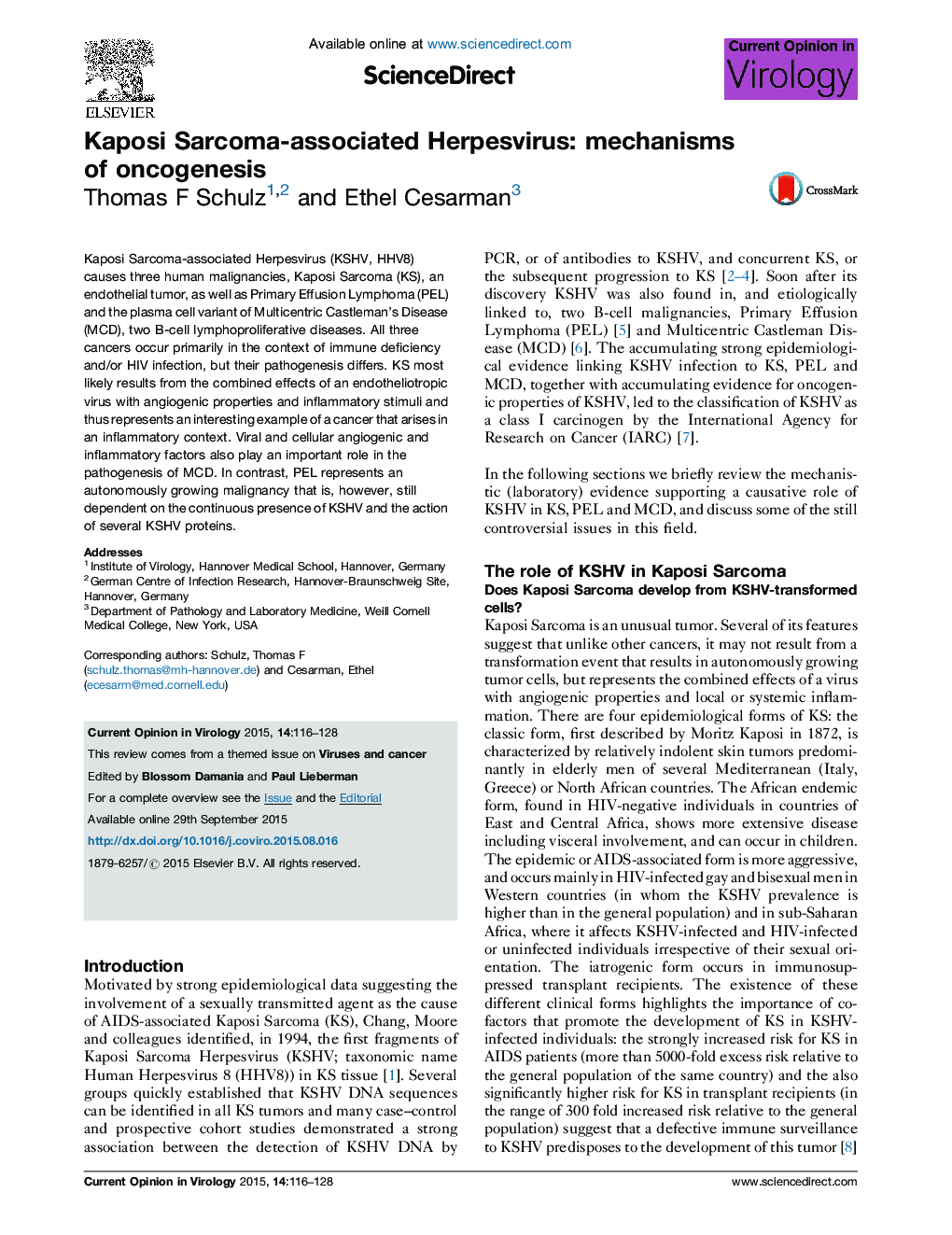| کد مقاله | کد نشریه | سال انتشار | مقاله انگلیسی | نسخه تمام متن |
|---|---|---|---|---|
| 2473256 | 1555912 | 2015 | 13 صفحه PDF | دانلود رایگان |

• KSHV/HHV8 causes three human diseases: Kaposi Sarcoma, Primary Effusion Lymphoma and the plasma cell variant of Multicentric Castleman Disease.
• These occur more commonly in patients with immunodeficiency, including AIDS.
• KS is heterogeneous, and may represent a spectrum between an angioproliferative disease and a true malignancy.
• KSHV encodes viral genes that can cause inflammation, angiogenesis and neoplastic transformation.
Kaposi Sarcoma-associated Herpesvirus (KSHV, HHV8) causes three human malignancies, Kaposi Sarcoma (KS), an endothelial tumor, as well as Primary Effusion Lymphoma (PEL) and the plasma cell variant of Multicentric Castleman's Disease (MCD), two B-cell lymphoproliferative diseases. All three cancers occur primarily in the context of immune deficiency and/or HIV infection, but their pathogenesis differs. KS most likely results from the combined effects of an endotheliotropic virus with angiogenic properties and inflammatory stimuli and thus represents an interesting example of a cancer that arises in an inflammatory context. Viral and cellular angiogenic and inflammatory factors also play an important role in the pathogenesis of MCD. In contrast, PEL represents an autonomously growing malignancy that is, however, still dependent on the continuous presence of KSHV and the action of several KSHV proteins.
Journal: Current Opinion in Virology - Volume 14, October 2015, Pages 116–128